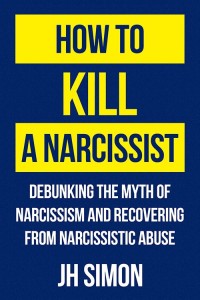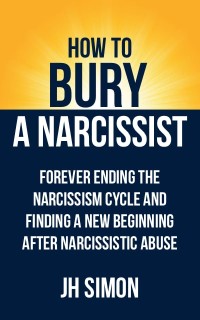Table Of Contents
The narcissist’s idealization, devaluation and discard cycle is a particularly malignant aspect of narcissistic abuse. It leaves the target feeling confused, abandoned and worthless.
Looking closer, we come to see that this behavior has nothing to do with the target, and everything to do with the narcissist’s warped view of the world. To better understand the idealize, devalue and discard cycle, it helps to first understand the mind and history of the narcissist.
Why Do Narcissists Idealize, Devalue And Discard?
To bolster their sense of superiority, the narcissist needs to recruit people. Yet not anyone can qualify. This club is exclusive, and has two entry requirements:
- A willingness to provide narcissistic supply.
- Proof of perfection.
For this reason, anyone the narcissist associates with must be useful and/or high value.
The narcissist’s bread and butter is to have a harem of subjects and admirers in their psychological pantheon of targets. If a target is willing to offer attention, validation, sex, resources or services, then the narcissist will idealize them as a worthwhile subject — so long as they remain loyal.
Eventually, the narcissist may grow bored of the target, or the target fails to live up to their initial promise. The target might resist too much, make demands, or worse, offend the narcissist. In other cases, the target’s flaws weigh down the narcissist and force them into feeling their shame. In all such cases, the narcissist recoils and quickly discards the target.
Then there are the exceptional ones. Those who possess the beauty, strength, intelligence, status or skill to be truly idealized. The narcissist is immediately struck by such a ‘high value’ person, and looks to merge with them completely. This makes sense when you see it through a narcissistic lens. If the person who enters into a relationship with you is high value, then you too are high value by association.
By devouring the attention, resources, services or status of others, the narcissist can elevate their sense of godhood. The narcissistic realm is a one-person cult consisting of countless subjects and deities. The narcissist is either being worshiped, or worships others as a way to prop up their grandiosity. The narcissist also idealizes people in order to feel safe enough to connect. By imagining a person to be unconditionally loyal or perfect, they can bond with someone who will never leave or disappoint them.
Yet this corrupted religion is just a fantasy in the narcissist’s mind. The narcissist’s entire life is dedicated to feeding their grandiosity. They use real people, exploit real resources, hurt real feelings, and cause real damage — all while buffering themselves from the reality within, which is the self-hatred, shame and rage they internalized in childhood.
Caught In A Loop: The Narcissist’s Repetition-Compulsion
In a ‘good enough’ childhood, the child attaches deeply to the mother, creating a safe ‘home base’ in her nurturing energy. The mother is lavish in her accessibility and warmth, and allows the child to regulate their nervous system and sense of Self through her. The mother sees the child, accepts the child, and takes joy in their presence.
Eventually, the child’s curiosity gains strength, and they venture out into the world. When they begin to feel unsafe, they run back to mommy to regain that sense of safety. Over time, they pendulate between freedom and nurture, going back and forth as they actualise into an independent and capable adult. This is known as the individuation process.
Original Betrayal
The wounded child did not have this luxury. They were not seen or accepted for who they truly were, and their mother did not take joy in their presence — unless they were performing to her expectations. The child pushed, and tried, and cooperated to gain their mother’s love, yet it never came.
As the years progressed, a feeling of betrayal and fury simmered beneath the surface. Shame burnt under child’s skin at being rejected over and again. The agony of not being seen or accepted became too much. The child became traumatized, and psychologically split off from the mother. This chasm would last a lifetime. If nobody was going to see the child for what they were worth, they would see themselves. The narcissist was born.
Looking For Redemption
Trauma has a fascinating life cycle. When someone is overwhelmed by a negative experience and is unable to process it, they become traumatized. Whether it is fear, shame or guilt, the energy of the emotions swirl inside, remaining stuck like a pressure cooker. The trauma ‘energy’ then triggers randomly and acts itself out in the person’s life.
Trauma is an experience which becomes stuck in purgatory. A human can only resolve the original trauma if they can prove that the next time a similar event happens, they will be equipped to handle it. For example, a child traumatized by a natural disaster can be encouraged to shake and run. In doing so, they take agency over their trauma, and then can resolve it. That is, helplessness breeds trauma, power resolves it.
In the narcissist’s case, their trauma is based on their original relationship with their mother. To resolve this trauma, they need to replay the entire thing. Therefore, they recruit people into an elaborate show, under the guise of a normal relationship.
The idealize, devalue and discard cycle, therefore, is nothing personal. Many targets are shocked to discover this. They were recruited into a re-creation of the past in the form of a dazzling fantasy.
The Mechanics Of The Narcissist’s Idealize, Devalue And Discard Cycle
The narcissist is on a treadmill, perpetually running away from their childhood trauma. Their only resolution is to create a fantasy world, recruit people into it, and then idealize them.
Idealization is a crucial component, because if the person is ‘perfect,’ then the relationship has a great chance of succeeding this time. In childhood, the mother did not see or accept the narcissist for who they were. The ‘ideal’ person, however, would offer all of this and more.
The truth is never far away, however, no matter how the narcissist deludes themselves and others. Behind their facade, the narcissist carries a paranoid ego which is always on the lookout for betrayal.
If the target deviates from their role in the narcissist’s fantasy, the narcissist will add the target to their black list. Targets might act recklessly or carelessly and upset the narcissist. They might offend the narcissist, sometimes on purpose, as their patience with the narcissist’s rigidity, perfectionism and controlling nature grows thin. The target might cheat, or they too might carry wounding which compels them to hurt the narcissist in terrible ways. In such cases, the narcissist receives an electrical jolt which causes their fantasy projection to flicker, allowing reality to seep through.
When Reality Rears Its Head
In extreme cases, such as cheating and other forms of betrayal, the narcissist’s grandiosity becomes irreparably injured. The narcissist responds by deciding that the target is no longer useful or perfect, but rather bad, or even disgusting. Beneath the narcissist’s fantasy realm lies immense paranoia, shame and anger.
When you sufficiently betray or disappoint the narcissist, their deeply-repressed toxic dump of trauma oozes out and takes them over. Rather than see this for what it is, the narcissist externalizes their pain and discomfort, and directs it toward the target, i.e. the horrible or worthless person. The narcissist decides then and there to discard the target, which heralds the devalue phase. From this point on, the narcissist lays the groundwork to rid themselves of the other person.
During the devalue phase, the narcissist will turn cold and contemptuous, judging, criticizing, stonewalling, attacking or ridiculing you at will. Because you are still caught up in the fantasy, this devalue phase will come as an enormous shock. You will grow flabbergasted, humiliated and sick to the stomach. In some cases, the narcissist may simply ghost you or walk away without another word.
In discarding their target, the narcissist gains their freedom again. In their traumatized, dissociated reality, this is the completion of the original individuation process which they failed to have with their mother. In reality, the narcissist carried all of this out in a fantasy. Nothing of substance has changed in the narcissist. They are reliving the past in their mind while dragging a real person along before spitting them out.
Do All Narcissists Idealize, Devalue And Discard?
When it is expedient, the narcissist will always end the cycle with a discard. However, external pressures such as marriage or finances could keep the narcissist in the relationship for far longer than they would prefer. In such cases, the devalue phase will drag out over years, as the target fights to keep the narcissist appeased while feeding them narcissistic supply. This is where narcissistic abuse becomes truly soul-crushing.
If the narcissist’s life is deeply entwined with the target, then they need to slowly push the target away before they discard them. The target, now used to the warmth of the narcissist’s unconditional positive regard, panics and begins questioning themselves during the devalue phase.
To get back into the narcissist’s good graces and return to the idealization phase, the target turns up their attempts at appeasement. Their hope is to restore themselves in the narcissist’s eyes, hence re-injecting the relationship with the original ‘idealization’ drug.
For the target, bonding with your dream person at first feels amazing. However, the traumatized core of the narcissist remains beneath the surface. The target forgets that, in time, all drugs wear off, and the bad feelings re-emerge as the cruel, blistering cold reality asserts itself, and the narcissist’s true nature comes through as the idealize, devalue and discard cycle comes to a head.
The narcissist then moves on, looking for the next person to repeat their drama with, unconsciously hoping that this time they succeed in resolving their trauma and completing their individuation.















